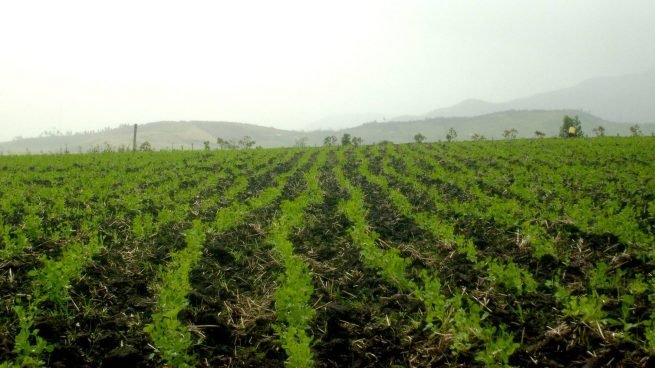In the Patagonian region, access to water is limited and extreme climatic conditions pose a constant challenge for agriculture.
In this context, smart irrigation emerged as an innovative solution. A team from INTA Esquel (Chubut) developed a system with artificial intelligence (AI) that optimizes water usage and improves crop quality in greenhouses.
Artificial Intelligence for Efficient Water Management
This smart irrigation system, designed in collaboration with the company Autoplants, integrates state-of-the-art sensors that measure soil moisture, temperature, and ambient humidity in real time.
 The artificial irrigation system. (Photo: INTA).
The artificial irrigation system. (Photo: INTA).
AI processes this data and determines the optimal time for watering, automatically activating solenoid valves connected to a drip irrigation system.
Furthermore, a digital flow meter records the amount of water used, ensuring efficient use of the water resource. The system is versatile and adapts to different types of crops.
Through a mobile application, producers can configure the device by selecting from 170 different crops, adjusting the irrigation parameters to the specific needs of each plant.
This allows for personalized irrigation management, optimizing resources and improving productivity.
Protection Against Frost and Adverse Weather Conditions
In addition to optimizing irrigation, the system features a frost protection mechanism, essential in the region. Equipped with sensors that measure temperature and humidity every 30 seconds, it uses machine learning algorithms to predict frosts with specific on-site data.
When it detects an imminent frost, it activates pumps or solenoid valves to spray water, forming a thin layer of ice that protects the crops from the cold.
Key Benefits for Patagonian Producers
 The salvation for crops.
The salvation for crops.
The implementation of this smart irrigation system offers multiple advantages for farmers in the region:
-
Automation of irrigation: frees the producer from the manual task of irrigation, allowing them to focus on other activities.
-
Water efficiency: optimizes water usage, reducing consumption and promoting sustainability.
-
Improvement in crop health: prevents water stress and foliar reduction, ensuring healthier and more productive plants.
-
Informed decision-making: AI generates forecasts that help plan irrigation and greenhouse management days in advance.
This technological advancement represents a significant step towards a more sustainable and resilient agriculture in Patagonia, adapting to the challenges of climate change and optimizing the use of available resources.

